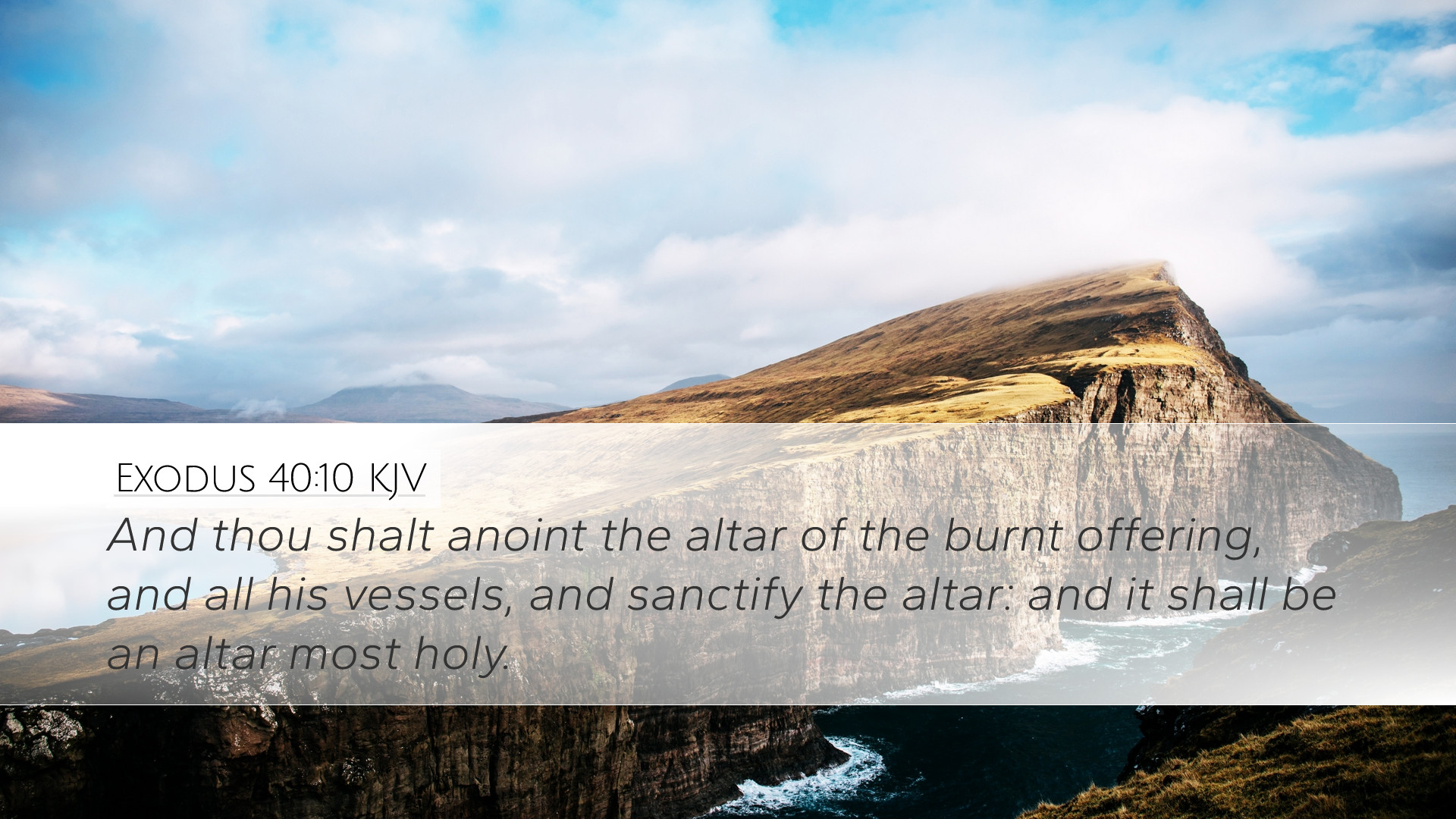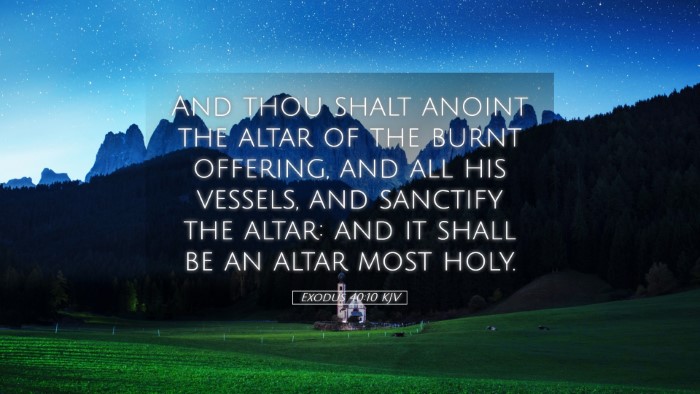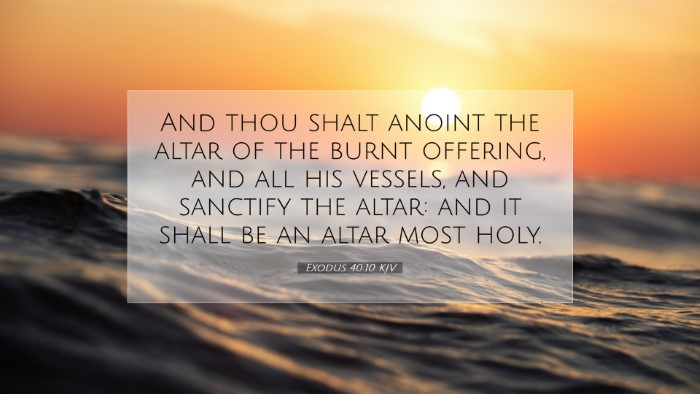Commentary on Exodus 40:10
Exodus 40:10: "And thou shalt anoint the altar of the burnt offering, and all his vessels, and sanctify the altar: and it shall be an altar most holy."
Introduction
This verse concludes a section of the Pentateuch focused on the tabernacle's establishment and the divine instructions for consecrating the sacred space and items involved in worship. The instructions given highlight the importance of sanctification in the service of God and set the tone for the practices of Israelite worship.
Insights from Matthew Henry
Matthew Henry emphasizes the significance of anointing as a means of consecration. He notes that anointing the altar symbolizes its separation from common use to divine service, rendering it an "altar most holy." The focus on holiness underscores that everything associated with worship must be set apart for God’s purpose. Henry remarks that the ministers and people are called to holy living, reflective of the altar's purpose.
Key Themes from Henry's Commentary:
- The Act of Anointing: This is a ritualistic act that manifests the seriousness of God’s calling. The altar, vessels, and indeed all elements of the tabernacle must be dedicated to God’s service.
- Holiness in Worship: Henry points out that nothing unclean may approach the altar. This concept necessitates a heart prepared for worship, reminding worshippers of their need for purity.
- Symbolism of the Altar: The altar is a place of sacrifice and communion with God; thus, it must bear a holy designation.
Insights from Albert Barnes
Albert Barnes focuses on practical implications of this verse. He elaborates on the necessity of sanctifying the altar and its vessels, indicating that it reflects the overall need for preparation in approaching God. Barnes suggests that every aspect of service, from preparation to execution, should align with God’s holiness and governance.
Key Themes from Barnes' Commentary:
- The Importance of Preparation: Barnes stresses that believers today must also prepare themselves spiritually and practically to approach the presence of God.
- Sanctification and Its Broader Implications: The requirements for sanctification extend beyond the physical objects to the hearts of the worshippers themselves.
- Divine Ownership: By anointing, all things become recognized as belonging to God, further inviting believers to respect this divine ownership in their lives.
Insights from Adam Clarke
Adam Clarke's commentary offers a historical and theological framework to Exodus 40:10, considering how the establishment of the altar symbolizes Christ’s ultimate sacrifice. Clarke delves into the typology presented in the sacrificial system of the Old Testament, portraying the altar as a precursor to Jesus Christ, who would fulfill the sacrificial role for mankind.
Key Themes from Clarke's Commentary:
- Typology of the Altar: Clarke emphasizes that the altar foreshadows Christ’s ultimate sacrifice, serving as a reminder of God’s plan for redemption.
- Consecration in Relation to Sacrifice: The anointing of the altar is significant when paired with the idea of sacrifice, suggesting that sacrifices must come from a place of holiness.
- Universal Call to Holiness: Through the lens of Clarke’s writings, the sanctification process depicted must inform believers today about their relationship with Christ and living a life reflective of their high calling.
Theological Reflections
The theological implications of Exodus 40:10 are profound, revealing layers of meaning related to holiness, worship, and the character of God. The act of anointing speaks to God's desire for a distinct and holy community that reflects His nature.
Further Reflections Include:
- The Nature of Worship: Our worship must be grounded in an understanding of God’s holiness.
- Consecration Practices: Today's Christians can learn from the ritualistic practices of the Israelites, re-emphasizing the need for a holy life that consecrates oneself for service.
- Commitment to God's Standards: The command to sanctify the altar underscores a broader call for dedication and commitment to uphold God’s standards in worship and subsequent life practices.
Conclusion
In conclusion, Exodus 40:10 serves as a powerful reminder of the sanctity of worship and the necessity for holiness in approaching God. Through the lenses provided by Matthew Henry, Albert Barnes, and Adam Clarke, we see various dimensions of the call to consecrate ourselves to God’s service. This passage invites clergy, scholars, and students of theology to reflect deeply on the nature of their worship, the seriousness with which they respond to God’s calling, and the importance of living a life exemplifying His holiness.


